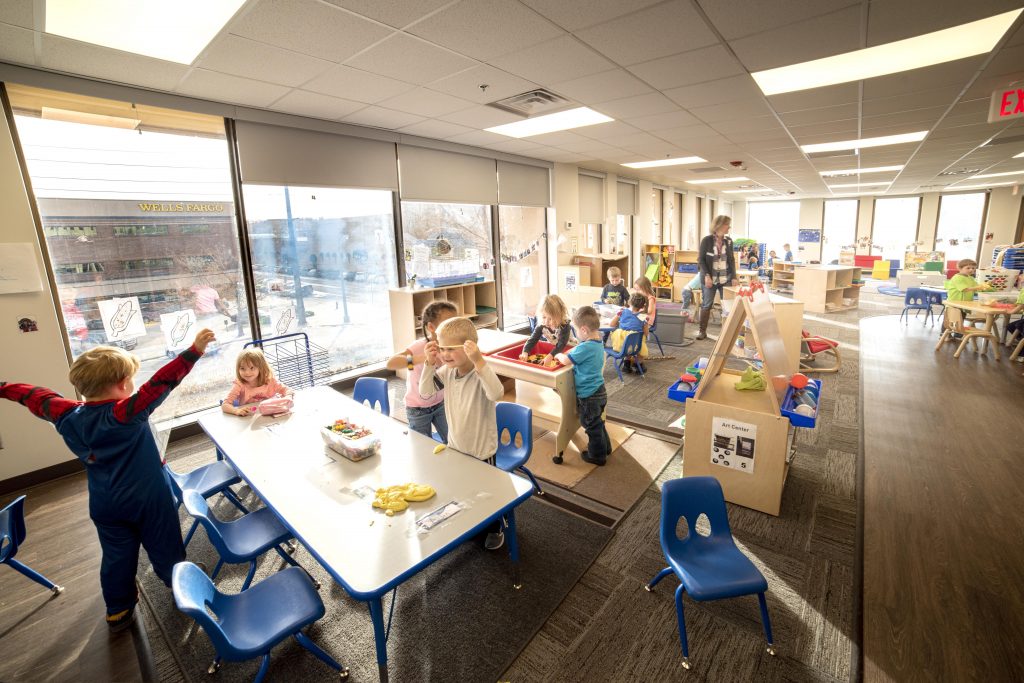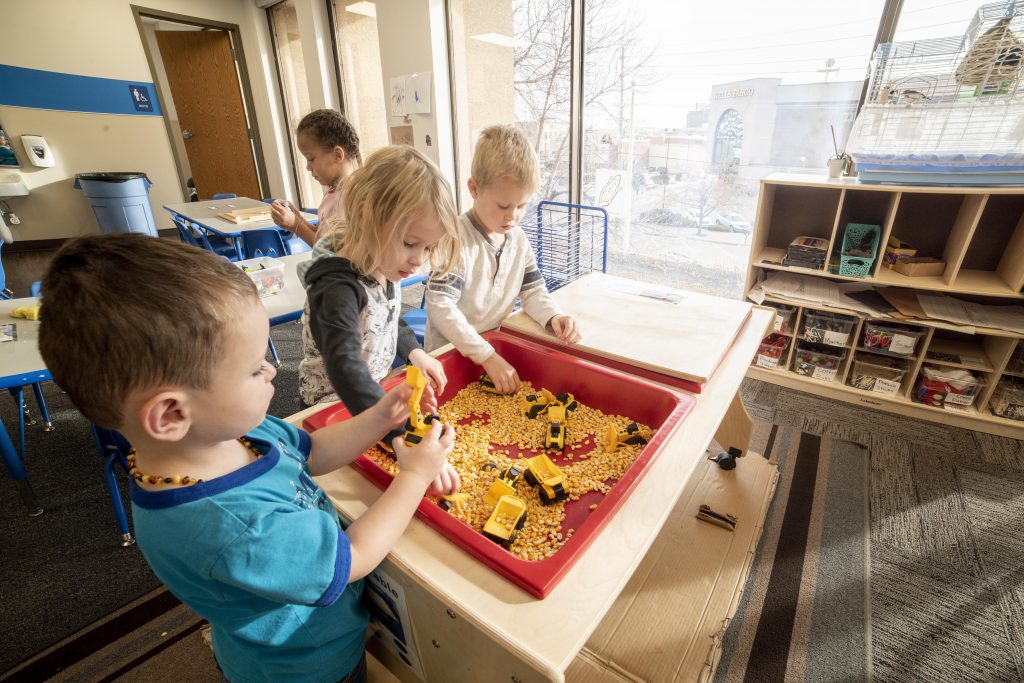Leaving your baby for the first time is hard, whether you’re a mom or dad. By preparing for the first day of daycare ahead of time, you can make the first day easier on your child — and on yourself.
For many of us, the first time we’re away from our children is when we have to return to work. This is usually within weeks of when they’re born.
For moms, your first day apart from your baby may be a few weeks or a couple months, depending on your job and maternity leave situation. If you’re a new dad, it might be only a week or two after they’re born. This is probably one of the hardest milestones for young families. Whether it’s your first child or your sixth, each one is special and changes your daily routine.
Give yourself time
The best thing you can do is prepare yourself, both physically and emotionally. Start gently easing into a routine; try waking up around the same time every day and get everyone ready to leave the house. The most important thing right now is to go slow — you don’t have to nail your morning routine every day starting out. Babies like consistency, so starting now will help them feel at ease when it comes time to go to daycare.
The emotional impact of being away from your baby is a little harder to prepare for. Up to this point, you’ve likely been your child’s primary caregiver. The change from being with them 24/7 to only seeing them before and after work is hard, and it’s important to acknowledge that!


Talking to other parents with children the same age as yours can help. They might not have the key to making this any easier, but talking with someone who is going through the same thing can provide solidarity. Setting up playdates can give you support structure while also giving your child a chance to be around new people, which can ease their transition as well. While you’re at it, ask them for their daycare recommendations, and check out the South Dakota Department of Social Services website for inspections on licensed care providers.
When the day finally comes, give yourself lots of time. Go early, help your child get as comfortable as possible, and then give yourself time to process your emotions. If that means having a good cry in the car or meeting a friend for coffee to talk about it, give yourself space.
Redefine balance and boundaries
Becoming a parent can change your entire outlook on your work-life balance, and that’s okay. Talk to your partner about your priorities as parents and be clear about each other’s roles and responsibilities. Do the same at work and don’t be afraid to set boundaries on when you are and are not available outside normal business hours. By having clear expectations of both your family and professional life, you’ll be able to better navigate any emotions or stress.
Give yourself some time to adapt to your new routine, too. Whether you’re up for late feedings or picking up more household chores, things have undoubtedly changed. If you’re feeling stressed or overwhelmed, give yourself some time to adjust and be honest with yourself, your family, and your job. Preparing for the first day of daycare applies to more areas of your life than just what’s going on for your kids — it can impact every aspect of your day!
How to prepare for the first day
Here are 7 ways to prepare for the first day of daycare and help make it go smoothly for everyone. These tips also work for any big life change, like the first day of school or if you change providers.
- Visit ahead of time. If your child recognizes the space and their new caretakers or teachers, they will be less stressed. If possible, visit more than once, and try to meet the children that will spend time with yours.
- Adjust your schedule. If your daycare has a daily routine, ask them for it and try implementing it at home ahead of time. The same goes for school; try to have lunch and take breaks for recess at similar times. Slowly adjusting times for these activities will make the transition easier.
- Practice age-appropriate independence. If your child is going from having your full attention to having to share, it can be a hard transition. Let them practice things like washing hands and putting on shoes, or give them more independent play time.
- Pack for success. Requests vary by daycare, but it’s good to have extra clothes in case of blowouts or spills, including outerwear in the winter and underwear for older children. For school, have them help pack their backpack or lunch for the next day.
- Bring something from home. If your child is old enough to sleep with a blanket or stuffed animal, bringing something familiar with them for naps is a great way to help them feel more at home. If your child already has a favorite, having two of the same item — one for home and one for daycare — is helpful.
- Plan for extra time. The first few drop-offs may take a little longer than you expect. Also, the more time you have, the more relaxed you’ll be, which can make your child feel less stressed as well.
- Be patient and understanding. This is a process that’s hard for you and your child. Give both of you some grace and a little extra love as you settle into your new routine.
WORDS: ASHLEY JOHNSON
PHOTOS: JESSE BROWN NELSON

